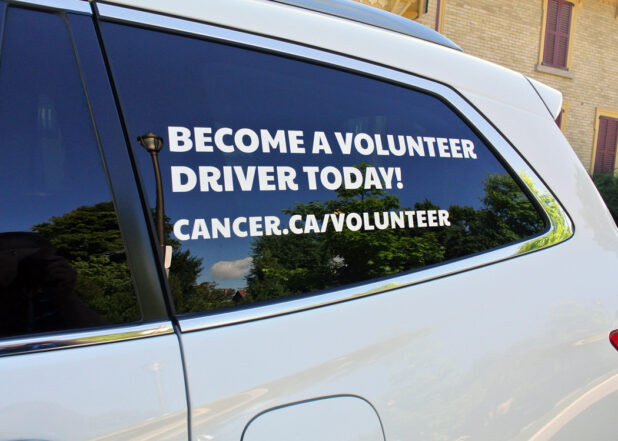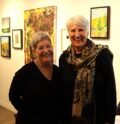Headline News
Volunteer drivers keep Wheels of Hope turning
February 22, 2023

By Nate Smelle
The last thing someone battling cancer should have to worry about is whether or not they can make it to their life-saving treatment. Sadly, for many people in Ontario and across Canada just getting to an appointment can add unneeded stress to their struggle; and, in some cases prevent them from receiving the proper treatment required to help in their fight against cancer.
In acknowledgment of the high demand for this essential service nationwide, the Canadian Cancer Society’s Wheels of Hope program provides cancer patients with transportation to and from their appointments. Operating without any government funding, the program relies on a crew of volunteer drivers.
Mark Kahan first learned of Wheels of Hope seven years ago through his brother-in-law, who was a volunteer driver with the program at the time. Soon after discovering the program he decided to get involved as a driver.
Now working as a volunteer recruiter for the program, Kahan is actively seeking new drivers to join their team. Recalling how he felt before signing up to become a driver, Kahan said “I was a little bit hesitant because I thought I would be dealing with really sad, depressed people, but I couldn’t have been more wrong. These people lifted my spirits. It was just a wonderful experience.”
Working with many of the drivers, Kahan said he often hears about the special moments they share with the clients. Likewise, he said he also hears from many of the clients that they don’t know what they would have done without the program.
“The magic really happens in the vehicles; on the drive there and on the way home,” said Kahan.
“Our volunteers sometimes get more out of the experience than our clients. That certainly happened to me. I just felt like my heart was being filled; it just felt so good being with the people. The clients are so grateful for a stranger driving them.”
Noting that “cancer doesn’t have an address,” Kahan said the Canadian Cancer Society really needs volunteer drivers all over the province. Currently, he said there is only one driver in the Bancroft area. However, in order to keep up with the demand for the program locally, he said they would need four to five new volunteer drivers to sign up.
“To have a handful of people in the Bancroft area would be amazing” said Kahan. “It would be such a huge help, and they would make a difference to someone in their own community.”
Having worked with the program for several years, Kahan said they have found that if people can’t find a way to get to their life-saving treatment they often decide not to go at all. Because many individuals are unable to drive themselves, he said without the service they end up having to depend on family or friends to take them. Considering that some people have to go through four to six weeks of radiation, Monday to Friday every day, Kahan said transportation can be a huge burden on themselves and their loved ones. To help reduce the stress this can cause, he said they have lodges in certain areas, where they can drop clients off on a Monday, and then bring them back home on Friday.
Kahan learned firsthand the level of sacrifice needed in this situation, when he was battling cancer as an eight-year-old boy living with his family in Regina, Saskatchewan.
“If there was a program then my parents weren’t aware of it,” explained Kahan. “My dad had to take time off work – he was working a full time job – and had to take me every day for treatments. Cancer just doesn’t affect the person that is going through it; it can affect their whole family.”
Depending on the type of cancer and treatment required, Kahan said someone in the Bancroft area may need transportation to a cancer treatment centre in Ottawa, Kingston, or Toronto for their appointments. As with many non-profit organizations, he said COVID-19 has made it more difficult to keep up with the demand for the program. With several volunteer drivers choosing to retire during the pandemic, he said Wheels of Hope needs new drivers to step forward and join their team, now more than ever.
Without any government funding for the program, Kahan said they are very careful with spending donor dollars. Acknowledging that the biggest expense of the program is mileage, he said even if someone can’t be a volunteer driver, they can still support the program by making a donation.
Although there is an annual registration fee of $100 per client to help offset the cost of the transportation service, Kahan said clients who cannot afford the fee can still access the program. If someone can’t afford the fee, he said they conduct an assessment in order to determine the individuals with the greatest need. From there, Kahan said they will either reduce the fee or waive it all together.
To register as a volunteer driver with Wheels of Hope visit: www.cancervolunteer.ca; or call 1-888-939-3333. To make a donation and/or learn more about the Canadian Cancer Society’s Wheels of Hope program, visit their website at: www.cancer.ca/en/living-with-cancer/how-we-can-help/transportation.

















